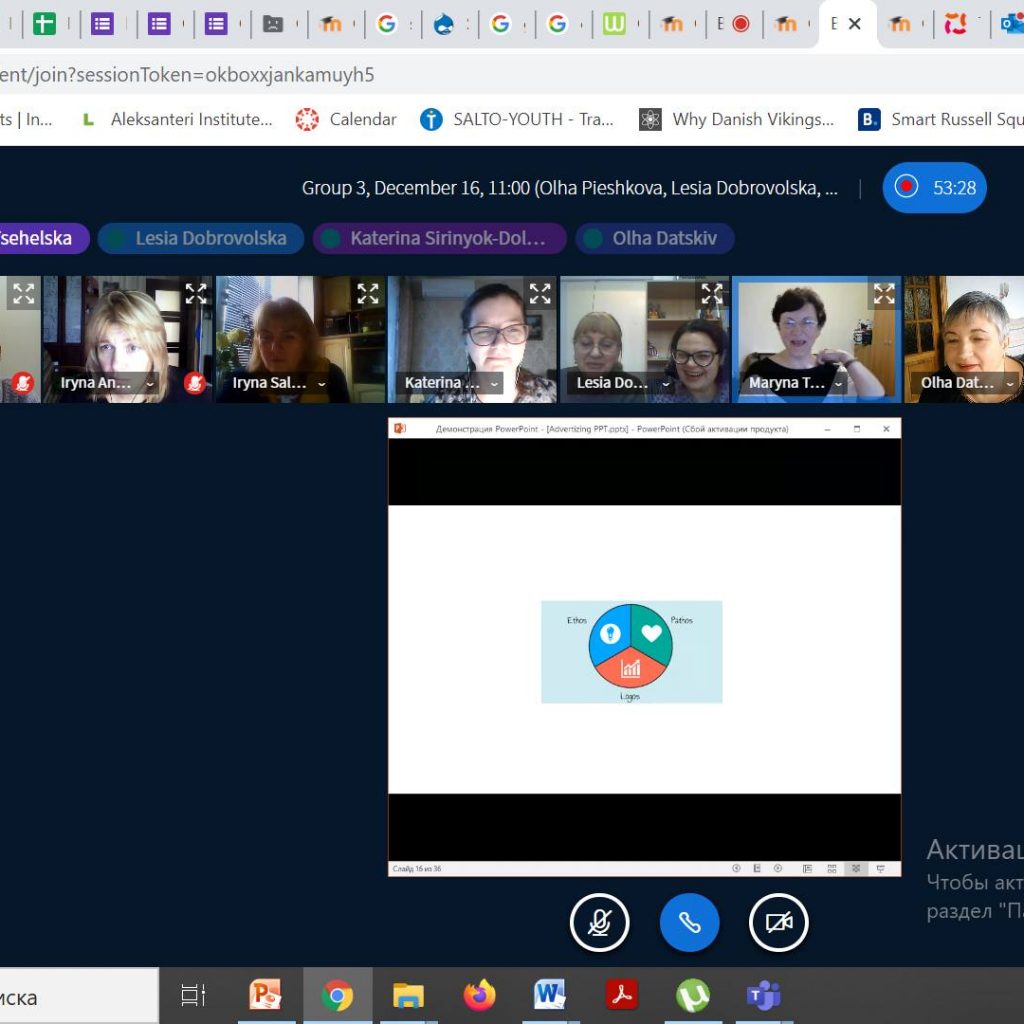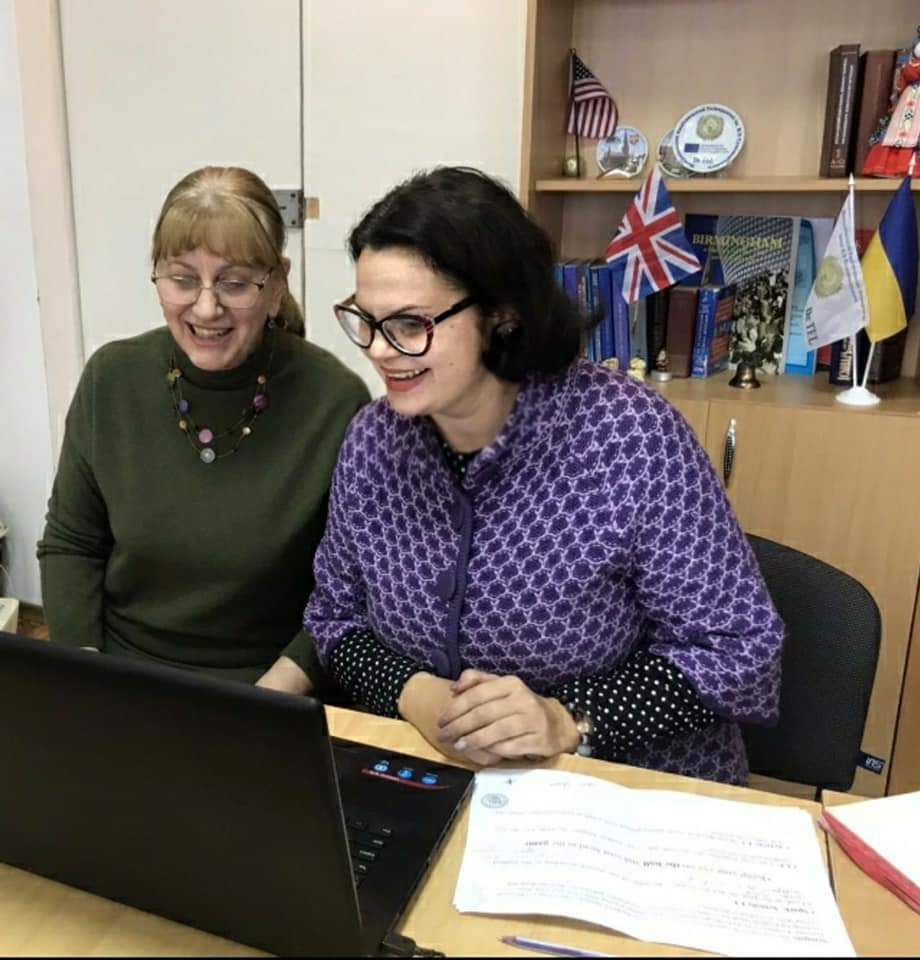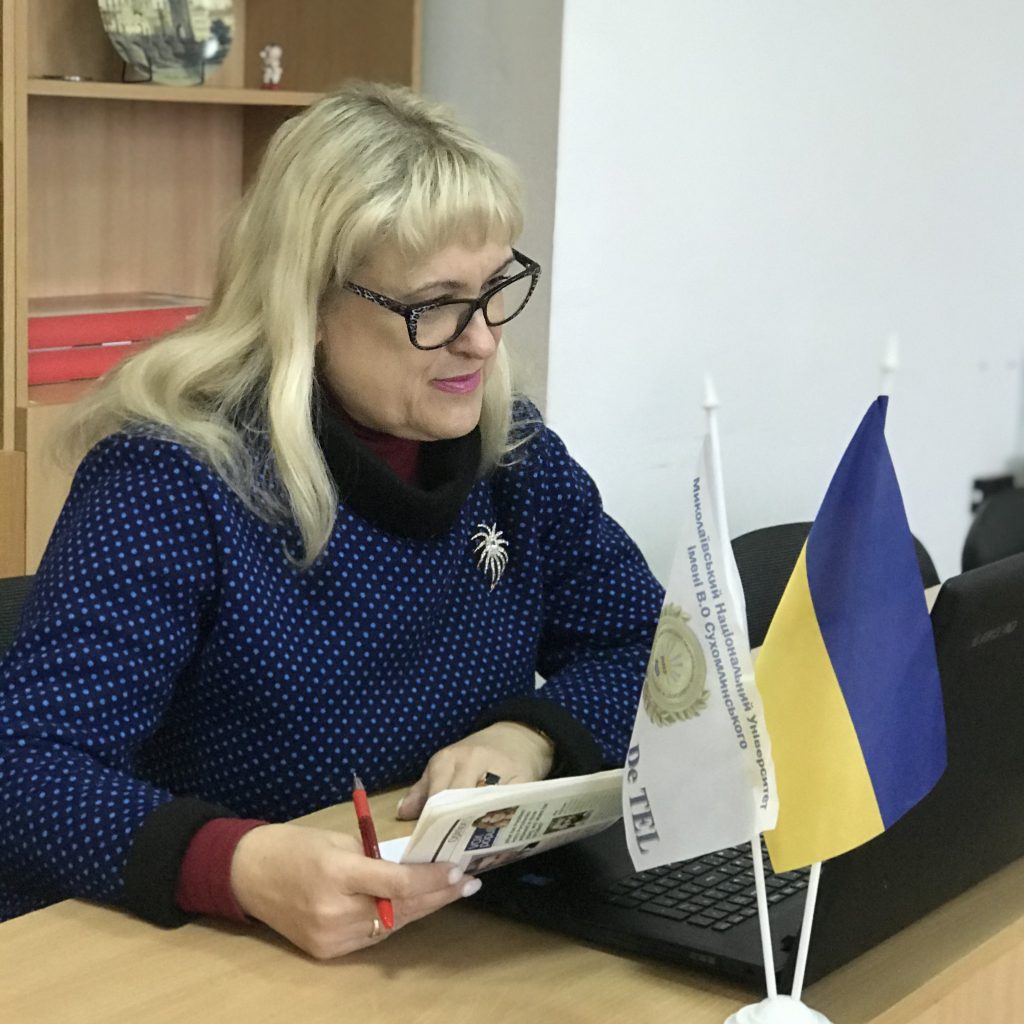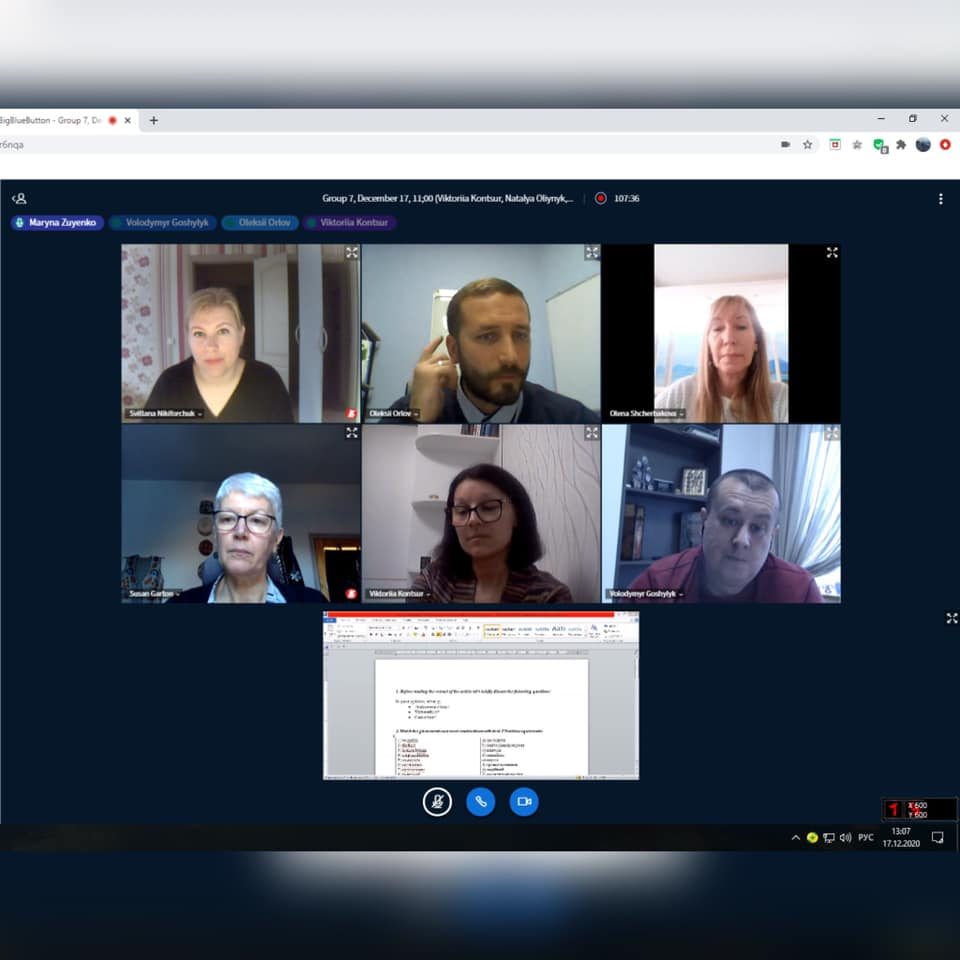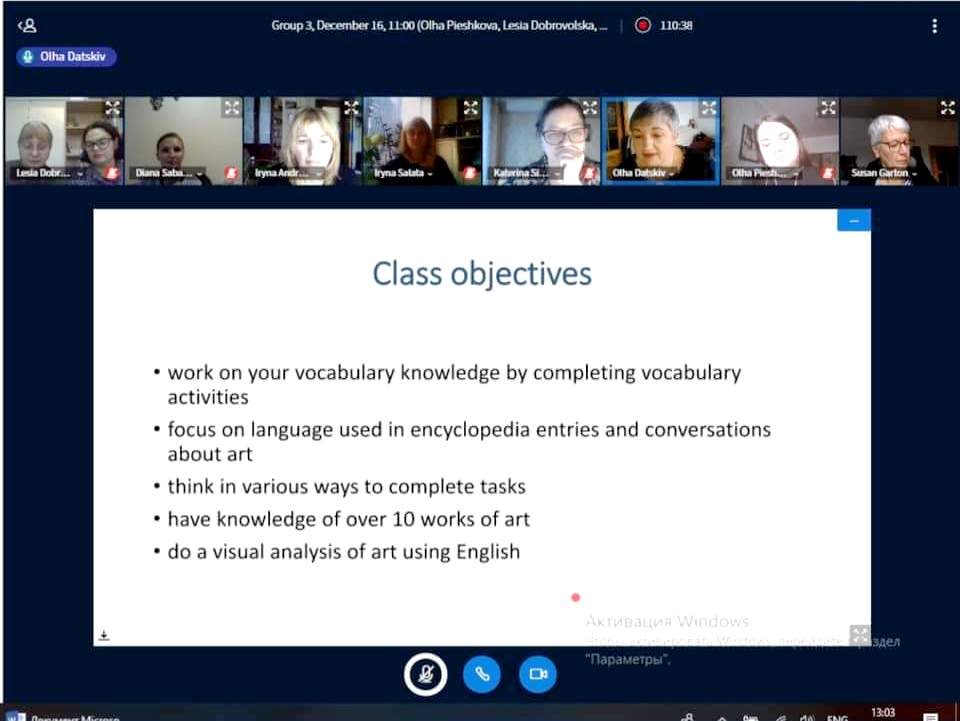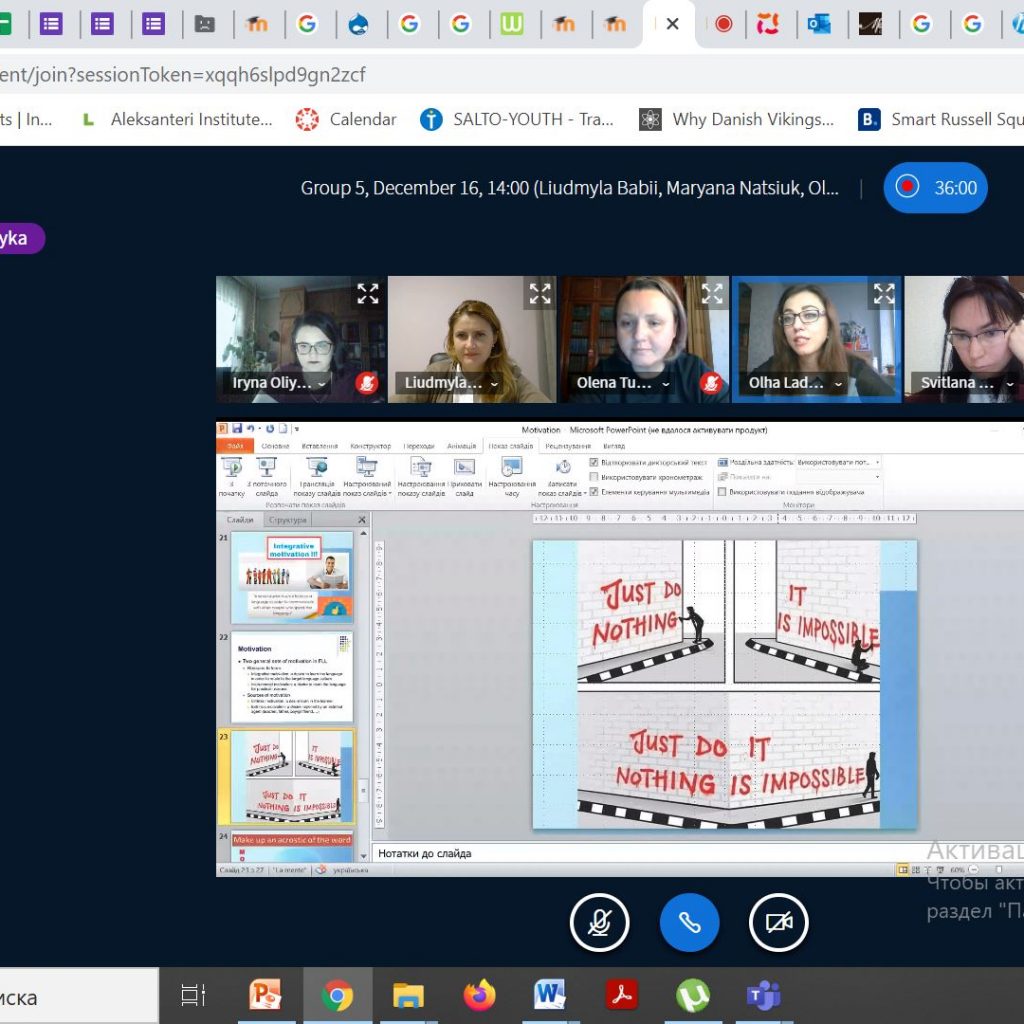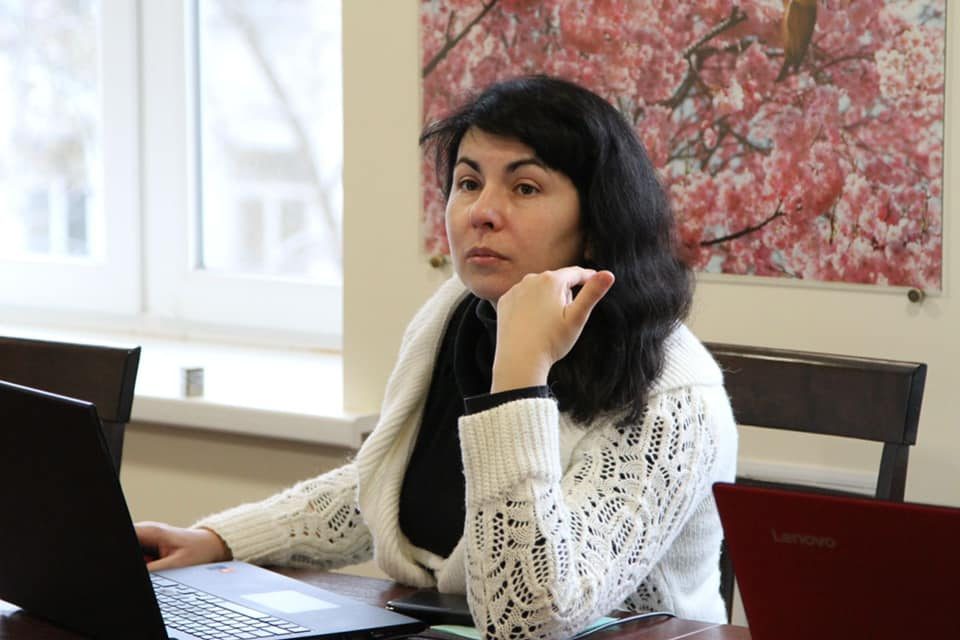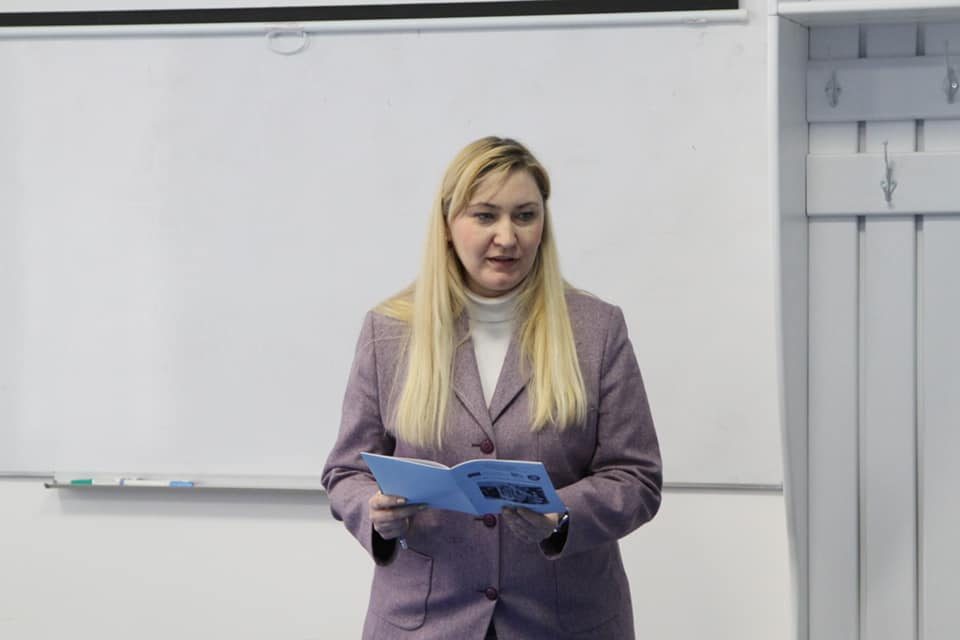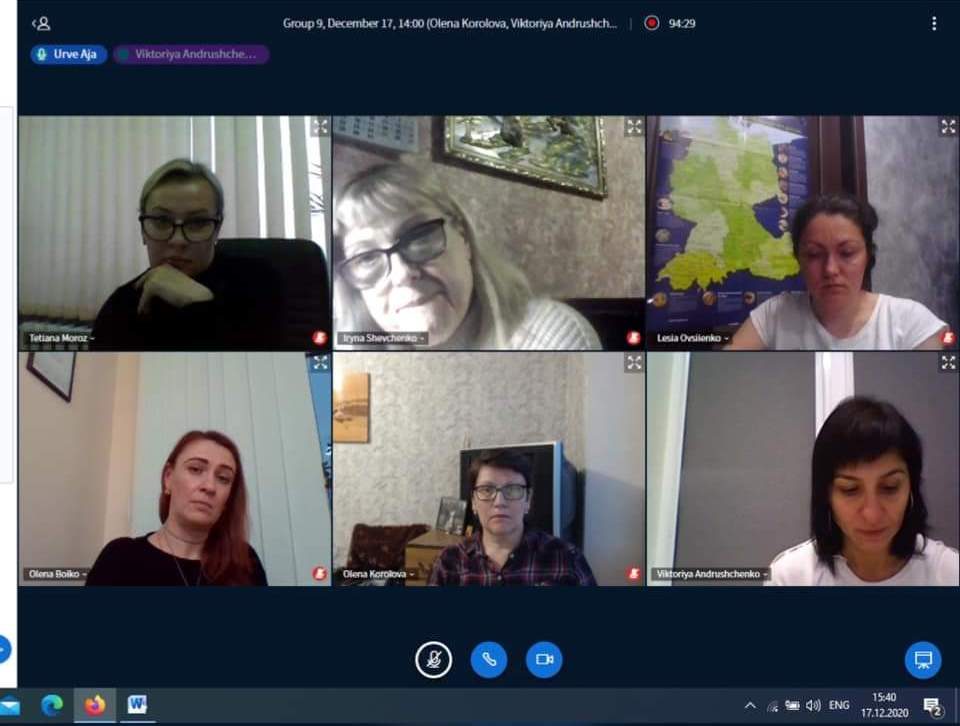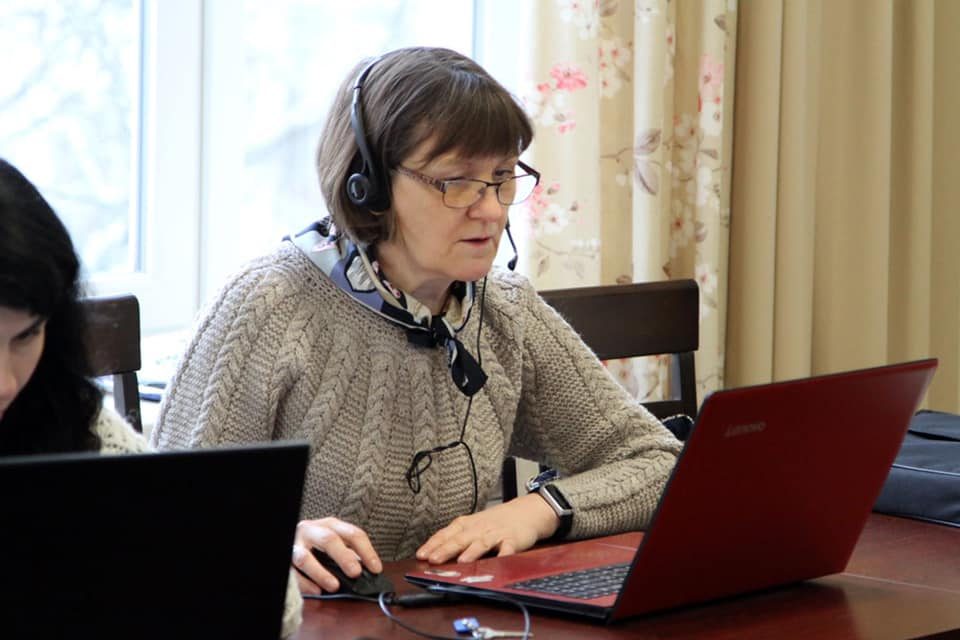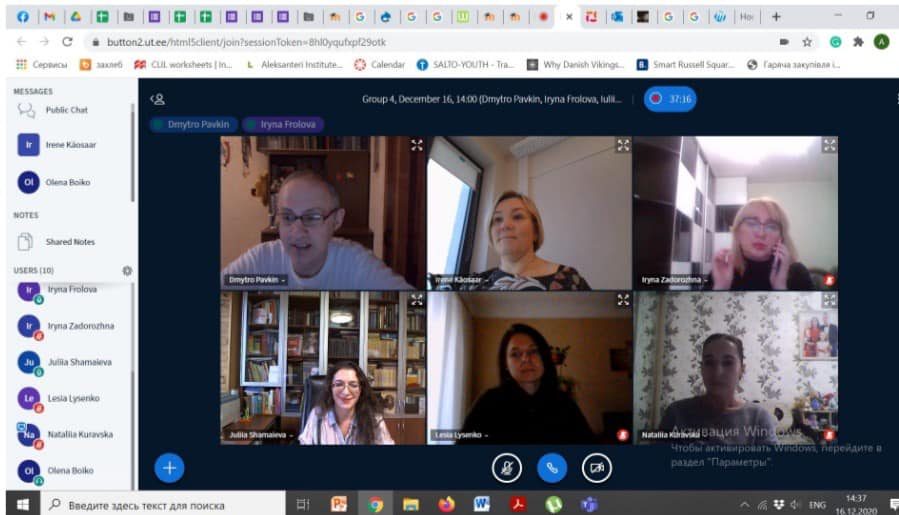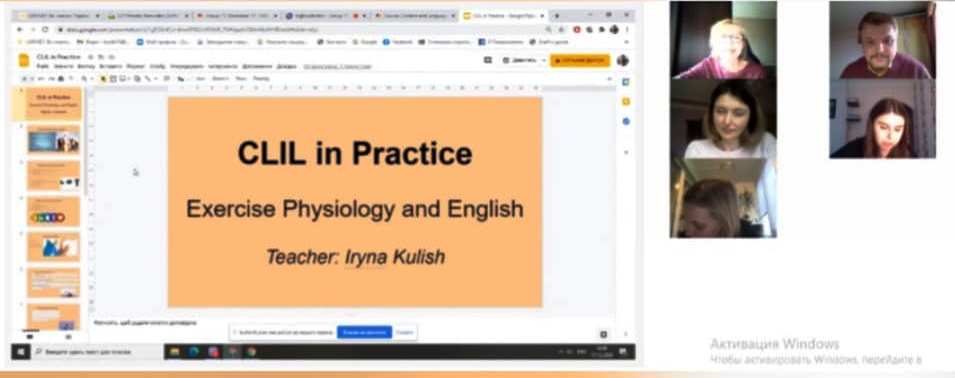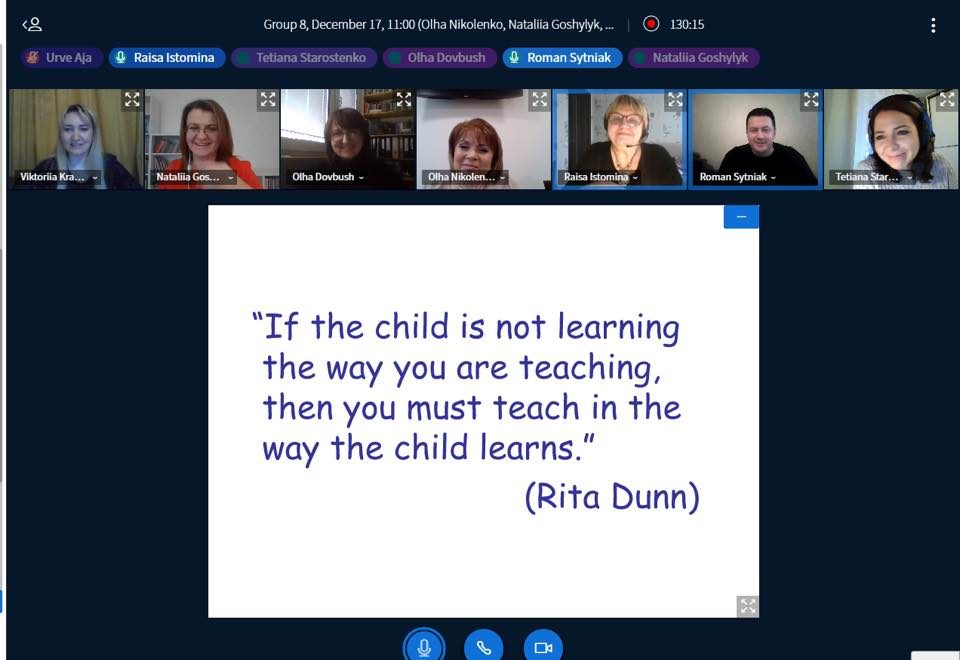Microteaching as an Effective Technique for Professional Development
In 16-17 December, an international microteaching marathon was held in the context of the Erasmus + Project “Foreign Language Teacher Training Capacity Development as a Way to Ukraine’s Multilingual Education and European Integration/ MultiEd”, one of the tasks of which is to develop foreign language teacher training capacity to modernize the educational process in Ukraine and further integration into the European educational environment. It was the final stage of an international online training of the continuing education programme “Content and Language Integrated Learning for Tertiary Education” (SVNC.TK.199) that started on the 18th of May 2020.
The project manager Oleksandra Golovko (University of Tartu, Estonia) organized online training and microteaching marathon. The consortium members Sue Garton, Elizabeth Wielander, Muna Morris-Adams (Aston Univeristy, UK), Urve Aja, Irene Käosaar and Anna Golubeva (University of Tartu, Estonia) participated as moderators in the event. Teachers of Ukrainian universities developed and presented lessons using microteaching technique. The technique was developed in the middle of the XX century by Dwight Allen and his colleagues from Stanford University to enhance teaching skills. The lesson employs real micro situation for developing learners skills and helps to enrich their knowledge. The participants of the microteaching online marathon applied CLIL approach and demonstrated a variety of interactive and communicative methods.
In the proposed micro lessons, everyone had an opportunity to participate both as teachers and learners. Each lesson presupposed obtaining professional knowledge and skills in theoretical and practical disciplines.
The members of the consortium gained valuable theoretical and practical experience by participating in 73 online micro lessons across a range of disciplines.
As the result, each participant was awarded with the certificate of successful completion of the continuing education programme “Content and Language Integrated Learning for Tertiary Education” (SVNC.TK.199).

